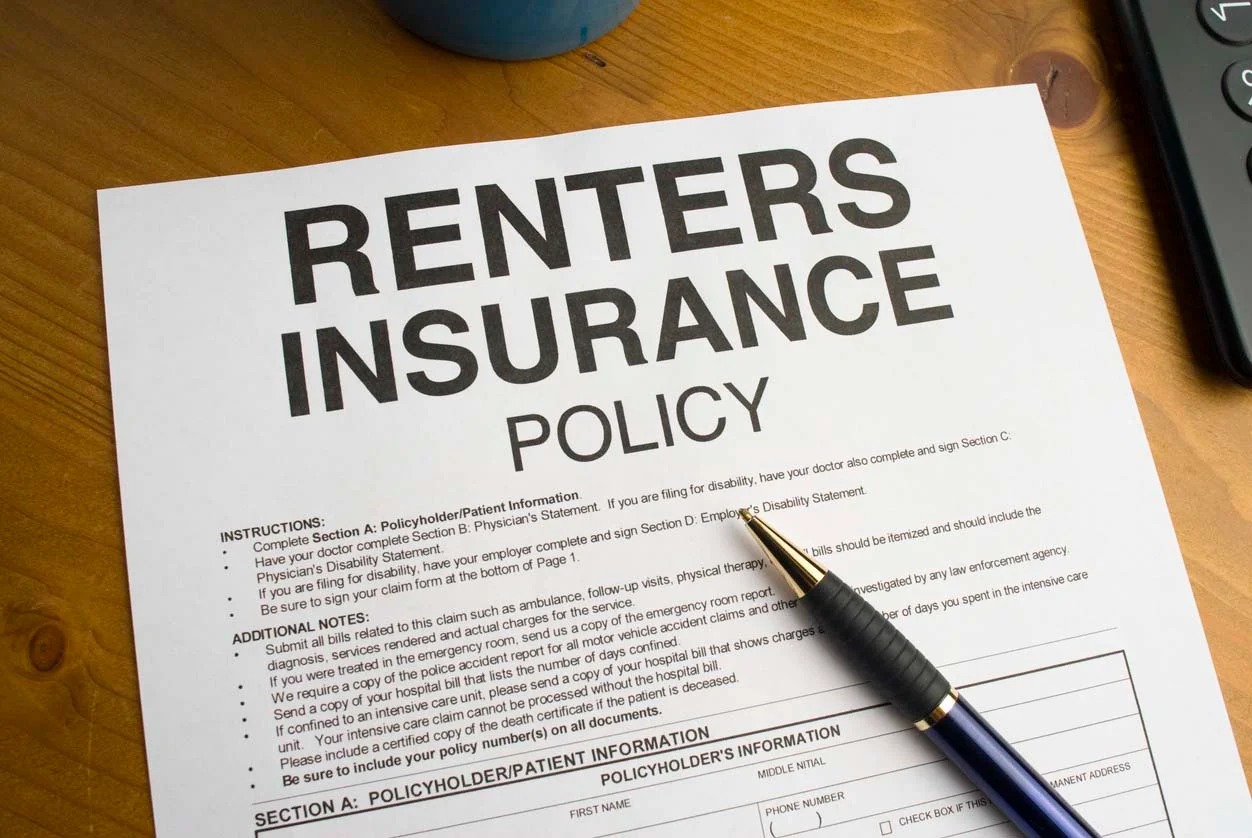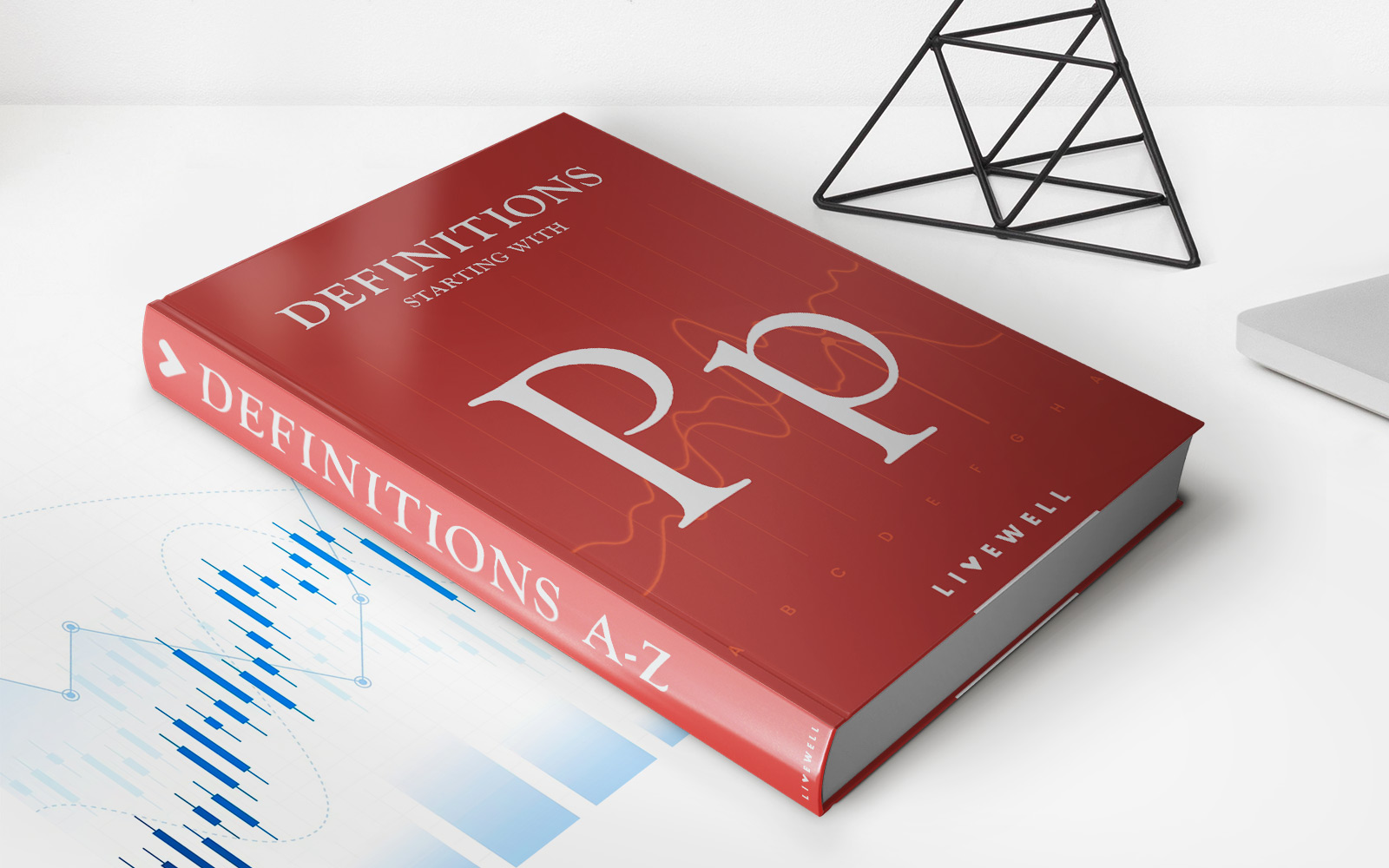

Finance
How Much Is Renters Insurance In Indiana?
Published: November 14, 2023
Find out how much renters insurance costs in Indiana and protect your finances. Compare rates and get the best coverage for your needs.
(Many of the links in this article redirect to a specific reviewed product. Your purchase of these products through affiliate links helps to generate commission for LiveWell, at no extra cost. Learn more)
Table of Contents
Introduction
Welcome to the world of renting in Indiana! As you embark on your journey as a renter, it’s important to prioritize the protection of your belongings and liability. One way to do this is by obtaining renters insurance. Renters insurance provides coverage for your personal property, liability protection, and additional living expenses in case of a covered loss.
With the unpredictable nature of accidents, theft, and natural disasters, having renters insurance can bring you peace of mind. It’s essential to understand the factors that influence the cost of renters insurance in Indiana, the coverage options available to you, and how to choose the best policy for your needs. In this article, we’ll explore these aspects in detail.
Whether you’re renting an apartment, house, or condo in Indianapolis, Fort Wayne, or any other city in Indiana, having renters insurance is a smart move. It not only protects your personal belongings but also shields you from potential legal and financial liabilities. In the event of a fire, theft, or even a guest getting injured on your property, having renters insurance can save you from significant financial loss.
Indiana is home to diverse neighborhoods and vibrant cities, but no matter where you live, it’s crucial to have the right protection. Understanding the factors that influence the cost of renters insurance in Indiana is the first step in securing the coverage you need at a price that fits your budget.
In the following sections, we’ll delve into the various factors that affect renters insurance rates in Indiana, the average costs you can expect, coverage options available, potential discounts, and tips on selecting the best policy for your unique needs. By the end of this article, you’ll have the knowledge and confidence to make an informed decision about your renters insurance in Indiana.
Factors that Affect Renters Insurance Rates in Indiana
When it comes to determining the cost of renters insurance in Indiana, several factors come into play. Understanding these factors can help you get a clearer picture of why rates may vary and allow you to make informed decisions when selecting your policy. Here are some key factors that can affect your renters insurance rates in Indiana:
- Location: The location of your rental property plays a significant role in determining your premiums. Factors such as crime rates, proximity to fire stations, and the likelihood of natural disasters in your area can impact rates. For example, if you live in an area with a higher crime rate, your premiums may be higher.
- Coverage Amount: The amount of coverage you choose for your personal belongings will affect your premiums. If you opt for a higher coverage limit, you can expect higher premiums. It’s important to conduct an inventory of your possessions and determine the value of your belongings to help you decide on an appropriate coverage amount.
- Deductible: The deductible is the amount you agree to pay out-of-pocket before your insurance coverage kicks in. Choosing a higher deductible can help lower your premiums. However, make sure you’re comfortable with the amount you’ll need to pay in the event of a claim.
- Insurance Company: Each insurance company has its own pricing model and underwriting guidelines. Rates can vary significantly from one company to another, so it’s crucial to shop around and compare quotes from multiple insurers to find the best coverage and price.
- Claims History: Your claims history can impact your renters insurance rates. If you have a history of multiple claims, insurers may see you as a higher risk and charge higher premiums as a result.
- Credit Score: In most states, including Indiana, insurance companies consider your credit score when determining premiums. Maintaining a good credit score can help you secure lower rates on your renters insurance policy.
By understanding these factors, you can take steps to mitigate the ones that are within your control, such as maintaining a good credit score, choosing an appropriate deductible, and comparing quotes from different insurers. It’s essential to evaluate your unique situation and find the right balance between coverage and cost when selecting your renters insurance policy in Indiana.
Average Cost of Renters Insurance in Indiana
The cost of renters insurance in Indiana can vary depending on several factors, including the location, coverage amount, deductible, and the insurance company you choose. To give you an idea of what to expect, let’s explore the average cost of renters insurance in Indiana.
On average, renters insurance in Indiana costs around $180 to $220 per year. This translates to approximately $15 to $18 per month. However, it’s important to note that these figures are just estimates, and your actual premium may be higher or lower based on your specific circumstances.
When determining the average cost of renters insurance, it’s crucial to consider the coverage limits and deductible. The average coverage amount for renters insurance in Indiana is typically $25,000 for personal property and $100,000 for liability coverage. These coverage limits can vary depending on your needs and preferences.
The deductible, which is the amount you’ll need to pay out-of-pocket before your insurance coverage kicks in, also plays a role in determining the cost of your policy. Deductibles for renters insurance in Indiana typically range from $500 to $1,000. Choosing a higher deductible can help lower your premiums, but it’s essential to ensure that you can comfortably afford the deductible amount in the event of a claim.
It’s worth mentioning that renters insurance premiums in Indiana may be influenced by the location of your rental property. If you live in an area with higher crime rates or a higher risk of natural disasters, you may face slightly higher premiums.
Keep in mind that these figures are averages, and your actual quote may vary. To get an accurate estimate for your specific situation, it’s best to obtain quotes from different insurance providers. Comparing quotes will allow you to assess the coverage options, pricing, and discounts available to you.
Remember, renters insurance is a worthwhile investment considering the protection it provides for your personal belongings and liability. The cost of replacing your belongings in the event of a covered loss or facing a lawsuit due to property damage or bodily injury can far exceed the cost of the insurance premium.
Now that you have an idea of the average cost of renters insurance in Indiana, let’s explore the coverage options available to you.
Coverage Options for Renters Insurance in Indiana
When it comes to renters insurance in Indiana, there are various coverage options available to protect your personal belongings, provide liability coverage, and offer additional living expenses in case of a covered loss. Understanding these coverage options will help you determine the level of protection you need. Here are the key coverage options for renters insurance:
- Personal Property Coverage: This is the core component of renters insurance. It provides coverage for your personal belongings, such as furniture, electronics, clothing, and jewelry, against covered perils, including fire, theft, vandalism, and certain natural disasters. It’s essential to determine the appropriate coverage amount based on the value of your possessions.
- Liability Coverage: Liability coverage protects you in case someone is injured while on your rented property or if their property is damaged due to your negligence. It covers legal expenses, medical bills, and property damage costs if you’re held responsible for the injury or damage. It’s generally recommended to have at least $100,000 in liability coverage, but higher limits are available.
- Additional Living Expenses (ALE) Coverage: If your rental property becomes uninhabitable due to a covered loss, ALE coverage helps cover the additional costs you may incur for temporary accommodations, meals, and other necessary expenses. This coverage ensures that you’re not left financially burdened if you need to temporarily relocate.
- Medical Payments to Others: This coverage option provides payment for medical expenses if someone is injured on your property, regardless of whether you’re at fault. It can cover costs such as ambulance fees, medical treatments, and even legal fees in some cases. It’s usually offered at a lower limit than liability coverage.
- Valuable Items Coverage: If you own high-value items, such as expensive jewelry, art, or collectibles, you may want to consider adding additional coverage specifically for those items. This endorsement ensures that these valuable possessions are adequately protected, often with higher coverage limits and added protection against specific risks.
It’s important to carefully review and assess your coverage needs when selecting your renters insurance policy in Indiana. Consider the value of your belongings, your potential liability risks, and any additional coverage requirements you may have. It’s always a good idea to discuss your specific needs with an insurance agent to ensure you have the right coverage in place.
Now that you understand the coverage options available, let’s explore potential discounts and savings on renters insurance in Indiana.
Discounts and Savings on Renters Insurance in Indiana
When purchasing renters insurance in Indiana, there are several ways to save money and take advantage of various discounts to help lower your premiums. These discounts can vary depending on the insurance company you choose, but here are some common discounts to look out for:
- Multi-Policy Discount: Many insurance companies offer discounts if you bundle your renters insurance with another policy, such as auto insurance. By having multiple policies with the same insurer, you can often enjoy a discounted rate on both.
- Security System Discount: If your rental property has security features such as a burglar alarm, deadbolt locks, or a security system, you may be eligible for a discount. These safety measures help reduce the risk of theft and can result in lower premiums.
- Smoke Alarms and Fire Sprinkler Discounts: Having working smoke alarms and fire sprinklers in your rental property can help protect against fire-related damages. Insurance companies often offer discounts for having these safety features installed.
- Non-Smoker Discount: If you don’t smoke, you may be eligible for a non-smoker discount. Smoking increases the risk of fire, so insurance companies may offer reduced rates for renters who are non-smokers.
- Good Credit Discount: Maintaining a good credit score can potentially lead to lower insurance premiums. Insurance companies often use credit-based insurance scores as a factor in determining rates, so keeping your credit in good shape can be beneficial.
- Claims-Free Discount: If you have a claims-free history, meaning you have not filed any insurance claims, you may qualify for a claims-free discount. Insurance companies reward policyholders who have a good claims history by offering lower rates.
- Association or Group Discount: Some insurance companies offer discounts to members of certain associations or groups. If you belong to a professional organization, alumni association, or other affiliated groups, be sure to inquire about potential discounts.
It’s important to note that not all insurance companies offer the same discounts, and the availability and eligibility criteria may vary. It’s a good idea to discuss potential discounts with insurance providers and compare quotes to ensure you’re getting the best possible rate for your renters insurance in Indiana.
Remember, while it’s important to find ways to save money on your premiums, make sure not to compromise on the coverage you need. Ensure that the policy you select adequately protects your belongings and provides sufficient liability coverage.
Now that you’re equipped with knowledge about discounts and savings, let’s explore some tips on choosing the best renters insurance policy in Indiana.
How to Choose the Best Renters Insurance in Indiana
Choosing the best renters insurance policy in Indiana requires careful consideration of your needs and preferences. Here are some tips to help you make an informed decision:
- Evaluate Your Coverage Needs: Take inventory of your belongings and assess their value. This will help you determine the appropriate coverage amount for your personal property. Consider any additional coverage options you may need, such as liability coverage or coverage for valuable items.
- Research Insurance Companies: Look for reputable insurance companies that offer renters insurance in Indiana. Research their financial stability, customer reviews, and claims process. You want to choose a company that has a good reputation and a track record of providing reliable coverage and excellent customer service.
- Get Multiple Quotes: Obtain quotes from different insurance providers to compare coverage options and pricing. This will help you identify any variations in premiums and discounts available. You can request quotes online or reach out to insurance agents directly to discuss your needs.
- Consider Deductibles: Evaluate your comfort level with deductibles and their impact on your premiums. Choosing a higher deductible can lower your premiums but ensure you can afford the out-of-pocket expense in case of a claim.
- Review Coverage Details: Pay attention to the specifics of each policy you are considering. Review the coverage limits, exclusions, and any additional features or endorsements offered. Make sure the policy aligns with your coverage needs and preferences.
- Ask About Discounts: Inquire about potential discounts offered by insurance companies. These can help lower your premiums. Ask about multi-policy discounts, security system discounts, non-smoker discounts, and any others that may apply to you.
- Consider Customer Support: Look for insurance companies that provide excellent customer support. You’ll want to choose a company that is responsive, helpful, and reliable when it comes to handling claims and addressing any questions or concerns you may have.
- Read and Understand the Policy: Take the time to read through the policy documents and make sure you understand the terms, conditions, and coverage details. If there are any ambiguities or questions, don’t hesitate to reach out to the insurance company for clarification.
- Seek Recommendations: Ask friends, family, or colleagues who have renters insurance in Indiana for their recommendations. Hearing about their experiences and insights can help you in the decision-making process.
By following these tips, you can navigate the process of selecting renters insurance in Indiana more effectively. Remember, the goal is to find the best balance between coverage, price, and quality of service that meets your specific needs.
Now that you have the knowledge to choose the best renters insurance policy for you, let’s wrap things up.
Conclusion
As a renter in Indiana, protecting your belongings and hedging against potential liability is essential, and renters insurance provides the necessary coverage for these situations. By understanding the factors that affect renters insurance rates, the average costs in Indiana, the coverage options available, potential discounts, and how to choose the best policy, you can make an informed decision to safeguard your assets.
When considering renters insurance in Indiana, factors such as location, coverage amount, deductible, insurance company, claims history, and credit score can impact your premiums. By evaluating these factors and obtaining multiple quotes, you can find the most suitable coverage at a competitive price.
The average cost of renters insurance in Indiana ranges between $180 to $220 per year, with coverage options including personal property coverage, liability coverage, additional living expenses, medical payments, and valuable items coverage. Understanding these options will help you tailor your policy to fit your specific needs and circumstances.
Moreover, taking advantage of discounts such as multi-policy, security system, non-smoker, and claims-free discounts can help further reduce your premiums. Researching insurance companies, reviewing coverage details, and considering customer support are also important aspects to consider when choosing the best policy.
Ultimately, renters insurance in Indiana plays a crucial role in protecting your personal belongings, mitigating liability risks, and providing financial security in case of unexpected events. It’s an investment that brings peace of mind and ensures you’re prepared for the unexpected.
Remember to assess your coverage needs, obtain quotes, and compare policies to find the right balance between coverage, cost, and quality of service. With the knowledge gained from this article, you are well-equipped to make an informed decision and secure the best renters insurance policy for your needs in Indiana.
So go ahead, protect your possessions, peace of mind, and financial security with renters insurance in Indiana!














